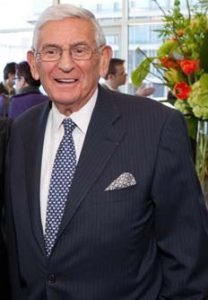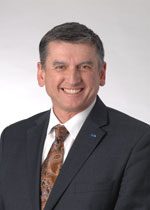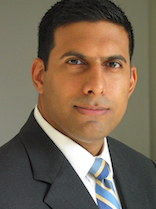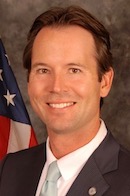Daily Business Report-Sept. 26, 2017
With lawmakers focused on the state’s shortage of affordable housing and its crumbling roads, education policymaking this year took a back seat.
Education Foes Fight to
a Draw in Sacramento
By Jessica Calefati | CALmatters
The sun was already sinking below the horizon on the final night of the lawmaking year as nearly two dozen lobbyists stalked the Capitol’s brightly lit hallways, making sure lawmakers didn’t approve a new math and science school for disadvantaged students.

Supporters including billionaire philanthropist Eli Broad had pitched the school as a slingshot from poor communities to the state’s most prestigious universities. But the state’s most powerful teachers union saw it as a dangerous effort to siphon away taxpayer money for a private operation with little public oversight.
By the time lawmakers finished their work at close to 3 a.m., the California Teachers Association had won; the proposal had never come up for a vote.
It was the last piece of education legislation to die in a year when the teachers union and its ascendant adversary, the California Charter Schools Association, fought to a stalemate while trying to shape the future of the state’s public schools. Both groups successfully halted virtually all the legislation they opposed.
The union stopped more than two dozen bills, including proposals to extend the length of time teachers must work before gaining lifetime job protection and address a shortage of educators in some hard-to-staff areas. The charter advocates killed half a dozen proposals, including some that would have forced their schools to hold public meetings and banned schools run by for-profit companies.
With lawmakers focused on the state’s shortage of affordable housing and its crumbling roads, education policymaking this year took a back seat. The losers, some experts say, are California’s low-income students, whose persistently low achievement hasn’t budged in decades amid the opponents’ charged policy battles.
“Rather than come around the table to address huge issues like our achievement gaps, these groups are working hard to protect their short-term self-interests,” said Bruce Fuller, an education policy professor at the University of California, Berkeley. “California rags on Washington politicians for thinking this way. If we looked in the mirror, we’d see we’re doing the same thing when it comes to our education politics.”
The back and forth wears on lawmakers, too. Sen. Ben Allen, a Democrat from Santa Monica who leads the Senate Education Committee, said he recites the serenity prayer before most hearings: God grant me the serenity to accept the things I cannot change….
“No one wants this job. It’s a tough committee,” he said. “The work can be very discouraging.”

California Teachers Association President Eric Heins applauded the union’s record. “We’re obviously happy when the things we oppose get stalled,” said Heins, whose group blocked or persuaded lawmakers to change all but one of the 30 bills it opposed this year. Many of those proposals stalled in the Legislature’s secretive appropriations committees.
The only measure going to Gov. Jerry Brown for consideration without the union’s stamp of approval would require municipalities to disclose the tax rate required to fund bond measures, including school bonds.
The two groups did reach a compromise on a bill that strengthens charter school discipline and dismissal policies. But the charter association’s chief advocate, Carlos Marquez, acknowledged how rare such agreements are. He called his group’s tension with the union a “regrettable state of affairs.”
“Where do we go from here?” said Marquez, the group’s senior vice president for government affairs. “Honestly, I don’t know. This work requires us to take the long view.”
The association didn’t take a formal position on the proposal to create a state-run STEM school for about 800 Los Angeles-area students, but it might as well have. Broad, one of the group’s wealthy benefactors and one of the union’s biggest foes, had been pushing for it since January.
His involvement was bound to draw union opposition.
Last year, Broad was among a small group of donors who banded together to invest nearly $20 million in campaigns that sent Democrats to Sacramento who support charter schools. This year, many of those donors, including Netflix CEO Reed Hastings, put another $10 million into Los Angeles’ school board races and helped elect candidates who view charters favorably.
By comparison, the union only used about $2 million from its political war chest for 2016 legislative races and backed mostly losing candidates with independent spending. It invested considerably more in ballot-measure battles. That imbalance led to speculation that the union’s prospects for a successful legislative year would dim, but that didn’t pan out.
CALmatters is a public interest journalism venture committed to explaining how California’s state Capitol works and why it matters. For more stories by Dan Walters, go to calmatters.org/commentary.
_________________
City Attorney Cracks Down
on San Diego Spice Dealers
City Attorney Mara Elliott announced Monday that Andy’s Smoke Shop in Hillcrest, its owner, and its manager have been found liable for illegally selling Spice and ordered to pay penalties of $52,500.
Spice is a synthetic substance that creates psychological effects similar to cocaine and methamphetamine and physical effects such as seizures, tremors, vomiting, and sometimes death. Its widespread use led to a sharp increase in drug overdoses in San Diego in the fall of 2015 and its sale was banned under an ordinance enacted by the City Council in 2016.
The civil penalties result from a trial last month at which Andy’s Smoke Shop and owner Ghada Shaba were found responsible for selling spice, a controlled substance, despite its health dangers and illegality:
In August 2017, following a bench trial, Superior Court Judge Katherine Bacal found Ghada Shaba, Ossam Shaba, and Andy’s Smoke Shop Inc., responsible for violating California’s Unfair Competition Law by selling controlled substances. In addition to the total penalties of $52,500, Andy’s Smoke Shop was permanently ordered not to sell Spice.
Earlier this year, the Cave Smoke Shops owned by Alraheb Enterprises Inc. agreed to stop selling spice and settled a civil law enforcement action with the San Diego City and District Attorneys’ offices for $28,000 in costs and penalties. Cave Smoke Shops are located in Hillcrest and North Park.
_________________
Top Speakers Announced for
Trigild Lender Conference


Futurist, author and journalist Michael Rogers, and economist Sam Chandan, are featured speakers at the 17th annual Trigild Fall Lender Conference on Oct. 18 at the Hotel del Coronado.
Keynote speakers Rogers and Chandan and others will share their observations on trends that will have the biggest impact on the lending and commercial real estate industries.
Chandan will talk about the state of commercial real estate and Rogers will discuss a range of disruptors —from technology to social — and specific impacts on the industry. Donald Sheets of AlumCreek Holdings will provide his contrarian perspective on CRE capital markets, and Peter Muoio, Ph.D, of Ten-X will discuss the outlook for the economy, capital markets and real estate.
A technology pioneer, author and journalist whose consultancy, Practical Futurist, helps businesses worldwide think about the future, Rogers has worked with FedEx, Boeing, NBC Universal, Prudential, Dow Corning, American Express and Genentech. He recently completed two years as a futurist-in-residence for The New York Times Company and writes the Practical Futurist column for MSNBC\
Chandan is founder and chief economist of Chandan Economics, a member of the real estate faculty at the Wharton School of the University of Pennsylvania, and a partner at Capri Capital, a global investment advisory firm. Chandan Economics, with principal offices in New York and research operations in India, supports commercial real estate debt and equity capital market participants with quantitative risk analytics and related mortgage data.
To register or learn more about the event, visit www.trigild.com and click on the Fall Lender Conference box.
_________________
Councilman Mark Kersey Elected
First VP of League of California Cities

San Diego City Council President Pro Tem Mark Kersey was elected first vice president of the League of California Cities in September as part of the League’s 119th annual Conference and Expo in Sacramento.
Kersey has served on the League board of directors since 2014, representing San Diego at the state and federal levels. Additionally, he serves on the National League of Cities Transportation and Infrastructure Services Federal Advocacy Committee.
“Council President Pro Tem Kersey brings years of leadership and expertise in economic development, technology and infrastructure to his League role. Cities are working on many of the same issues to ensure they are able to deliver essential services to their residents,” said League Executive Director Carolyn Coleman. As the League’s first vice president, Mark will play an important role in advancing policy solutions to help maintain the vibrancy of our local communities.”
The League’s full board of directors:
Officers: President Rich Garbarino, council member, South San Francisco; First Vice President Mark Kersey, council member, San Diego; Second Vice President Jan Arbuckle, council member, Grass Valley; and Immediate Past President JoAnne Mounce, council member, Lodi.
_________________
Finding a Critical Piece
of the Puzzle to end HIV
Scientists at The Scripps Research Institute (TSRI) have made a critical advance in designing a vaccine that could block infection by the most common strain of HIV, known as subtype C — which could be used as part of a combination therapy to potentially block the vast majority of infections worldwide.
The development was possible thanks to previous studies at TSRI showing the structures of a protein on HIV’s surface, called the envelope glycoprotein. The scientists used these structures to design a mimic of the viral protein from subtype C. The new immunogen is now part of a growing library of TSRI-designed immunogens that could one day be combined in a vaccine to combat many strains of HIV.
_________________
Sanford Burnham Scientist Receives$10.8M
Grant to Find Drug for Substance Abuse
The National Institute on Drug Abuse at the National Institutes of Health has awarded Nicholas Cosford a three-year, $10.8 million grant to pursue the preclinical development of a new class of medicine to treat substance abuse disorders. Cosford is a professor at Sanford Burnham Prebys Medical Discovery Institute’s NCI-Designated Cancer Center.
Cosford will lead a multidisciplinary team of scientists at SBP, UC San Diego and Camino Pharma LLC
The grant will allow Cosford’s team to move forward with studies of the effectiveness of their lead compound, SBP-0069330, which has been selected based on favorable drug-like properties including oral bioavailability, brain penetration and efficacy in valid animal models of substance abuse
“We are enthusiastic about the prospects of developing this novel drug to treat people who suffer from substance use disorders,” says Robert Anthenelli, M.D., professor of Psychiatry at UC San Diego, and collaborator for the study. “Cocaine addiction remains a major public health problem without any FDA-approved medications for treatment. Cigarette smoking, the largest preventable cause of morbidity and mortality among adults worldwide, has several FDA-approved medications to reduce nicotine cravings and withdrawal, but there is a need for more effective options.”


